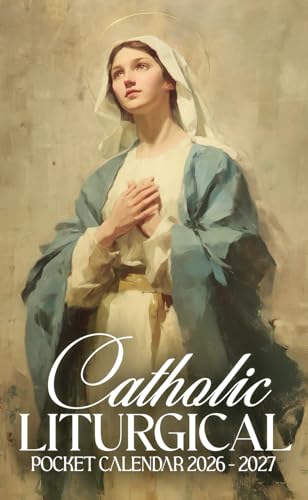Homeschooling & Catholic Family Life

Living the Liturgical Year at Home
The rhythm of the Church is reflected in the liturgical year. And your home can move in that same rhythm. Through seasons and feast days, we join with prayers of the universal Church to celebrate and reflect the spirit of each time.
The Liturgical Calendar starts anew each November on the first Sunday of Advent. It incorporates the seasons of the life of Christ and the Church. We are taught, “Holy Church celebrates the saving work of Christ on prescribed days in the course of the year with sacred remembrance. Each week, on the day called the Lord’s Day, she commemorates the Resurrection of the Lord, which she also celebrates once a year in the great Paschal Solemnity, together with his blessed Passion.” ~ Constitution on Sacred Liturgy
Moving through the Liturgical Year, we encounter the entire mystery of Christ and observe the feast days of the Saints. Our observances include the Sacred Liturgy, vestment colors, hymns, customs of local Churches, and celebrations. Unlike the marking of secular time, the Liturgical Year marks the sacred mysteries of the life of Jesus.
“The year is transfigured by the liturgy. It really is a ‘year of the Lord’s favor.’ The economy of salvation is at work within the framework of time, but since its fulfillment in the Passover of Jesus and the outpouring of the Holy Spirit, the culmination of history is anticipated as a foretaste and the kingdom of God enters into our time.” ~ The Catechism of the Catholic Church, 1168
Celebration of the Liturgical Year is not just reserved for a church. Our homes are a domestic church, and we should incorporate the celebration of the Liturgical Year into the rhythm of our family life.
Resources for Home Liturgical Celebrations
-
Liturgical Ikebana: The Christian Year in Color & Form
-
The Year of the Lord in the Christian Home
-
Catholic Liturgical Pocket Calendar 2026 – 2027: Two-Year Small Daily Planner fo...
-
Home in the Church: Living an Embodied Catholic Faith
-
Educating in Christ: A Practical Handbook for Developing the Catholic Faith from...
-
Lent and Holy Week in the home
-
In Conversation with God: Meditations for Each Day of the Year (7 Volume Set)
-
Catholic Liturgical Pocket Calendar 2026 – 2027: Holy Days of Obligation with De...
-
The Gloria Hymnal For Use in Church and School and Home. ENGLISH AND LATIN HYMNS...
-
Glory in All Things: St Benedict & Catholic Education Today
“The right and duty of parents to give education is essential… It is original and primary… It is irreplaceable and inalienable and incapable of being entirely delegated or usurped by others.”
~ Pope St. John Paul II
Familiaris Consortio
Since parents have given children their life, they are bound by the most serious obligation to educate their offspring and therefore must be recognized as the primary and principal educators. This role in education is so important that only with difficulty can it be supplied where it is lacking. Parents are the ones who must create a family atmosphere animated by love and respect for God and man, in which the well-rounded personal and social education of children is fostered.
Hence the family is the first school of the social virtues that every society needs. It is particularly in the Christian family, enriched by the grace and office of the sacrament of matrimony, that children should be taught from their early years to have a knowledge of God according to the faith received in Baptism, to worship Him, and to love their neighbor. Here, too, they find their first experience of a wholesome human society and of the Church.
Finally, it is through the family that they are gradually led to a companionship with their fellowmen and with the people of God. Let parents, then, recognize the inestimable importance a truly Christian family has for the life and progress of God’s own people.
The family which has the primary duty of imparting education needs help of the whole community. In addition, therefore, to the rights of parents and others to whom the parents entrust a share in the work of education, certain rights and duties belong indeed to civil society, whose role is to direct what is required for the common temporal good.
Its function is to promote the education of youth in many ways, namely: to protect the duties and rights of parents and others who share in education and to give them aid; according to the principle of subsidiarity, when the endeavors of parents and other societies are lacking, to carry out the work of education in accordance with the wishes of the parents; and, moreover, as the common good demands, to build schools and institutions.
Finally, in a special way, the duty of educating belongs to the Church, not merely because she must be recognized as a human society capable of educating, but especially because she has the responsibility of announcing the way of salvation to all men, of communicating the life of Christ to those who believe, and, in her unfailing solicitude, of assisting men to be able to come to the fullness of this life.
The Church is bound as a mother to give to these children of hers an education by which their whole life can be imbued with the spirit of Christ and at the same time do all she can to promote for all peoples the complete perfection of the human person, the good of earthly society and the building of a world that is more human.









